Exclusive Interview: Cast and Director of Death of a Whistleblower
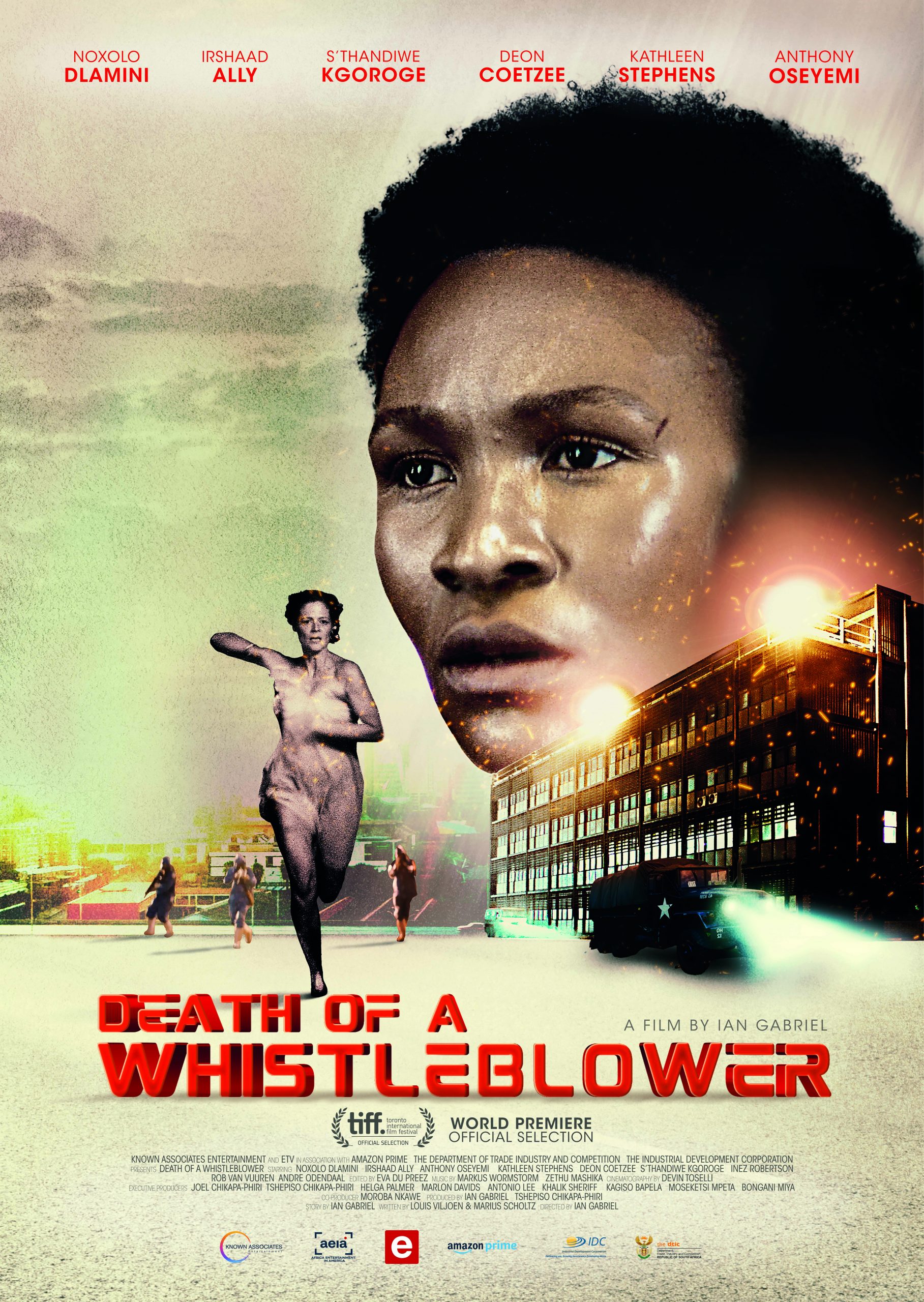
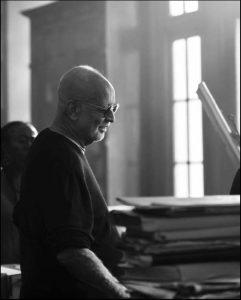
When Luyanda’s no bullshit reporting style lands her in trouble at work, an independent journalist, Stanley, tries to recruit her for research on a top-secret exposé related to the 1996 Truth and Reconciliation Commission and its aftermath. Soon Luyanda finds herself left in possession of Stanley’s laptop. Driven to carry on Stanleys’ work, she enlists the help of her tech savvy best friend, Astha, to track down Stanley’s inside man – a state military whistleblower with an axe to grind named Albert. As they dig deeper, Luyanda and Astha unveil evidence of widespread corruption and disturbing links between South Africa’s current illicit trade and its dark Apartheid past. Luyanda races against time to put together the truth that will bring down the beast.
Directed by Ian Gabriel, Death of a Whistleblower is a South African investigative thriller rooted in truth and the very real experiences in South Africa and the African diaspora. Death of a Whistleblower makes its world premiere at the 2023 Toronto International Film Festival running September 1-17. Our exclusive Classic Couple Academy interview with director Ian Gabriel, Noxolo Dlamini in the role of Luyanda Masinda, Kathleen Stephens in the role of Astha Patel and Anthony Oseyemi as “the Tracker” follows.
The film references complex South African history as it navigates its present story. In working with the material, how did you balance keeping the action and narrative moving while providing enough historical context for the audience?
Ian Gabriel: In our story a woman died 50 years earlier. And we ask why another woman should care about this life. Well, I think that’s the history of our country. Right there. We are a very mixed country, and we care about each other in the most profound way. All the time. Of course, the stuff that gets told is the ugly stuff that erupts every now and then. But we’re tied together. The love and the caring and the way we are bonded together—all our lives have benefited so much from each other. That was something I really wanted to see and portray in the film. And I think we do see it. That’s what makes me feel good about the film.
How important was it to have a woman as the lead, the hero, in the film? How did that inform the directorial approach and the acting of the entire cast?
Ian Gabriel: I think it was vital to the telling of this story for several reasons. We had a story that straddles two time periods, which I quite liked. I also liked the fact that if a past crime happened that concerned a woman, that the person who should solve that crime should also be a woman. And the woman in the past happened to be a white woman. So having a Black woman who solves the issue and it being South Africa was essential to balance the ideas. So, we built up a whole structure of a powerful woman to tell the story and drive it forward. And that by design and by intention. I think the film has a certain kind of character and style because of that.
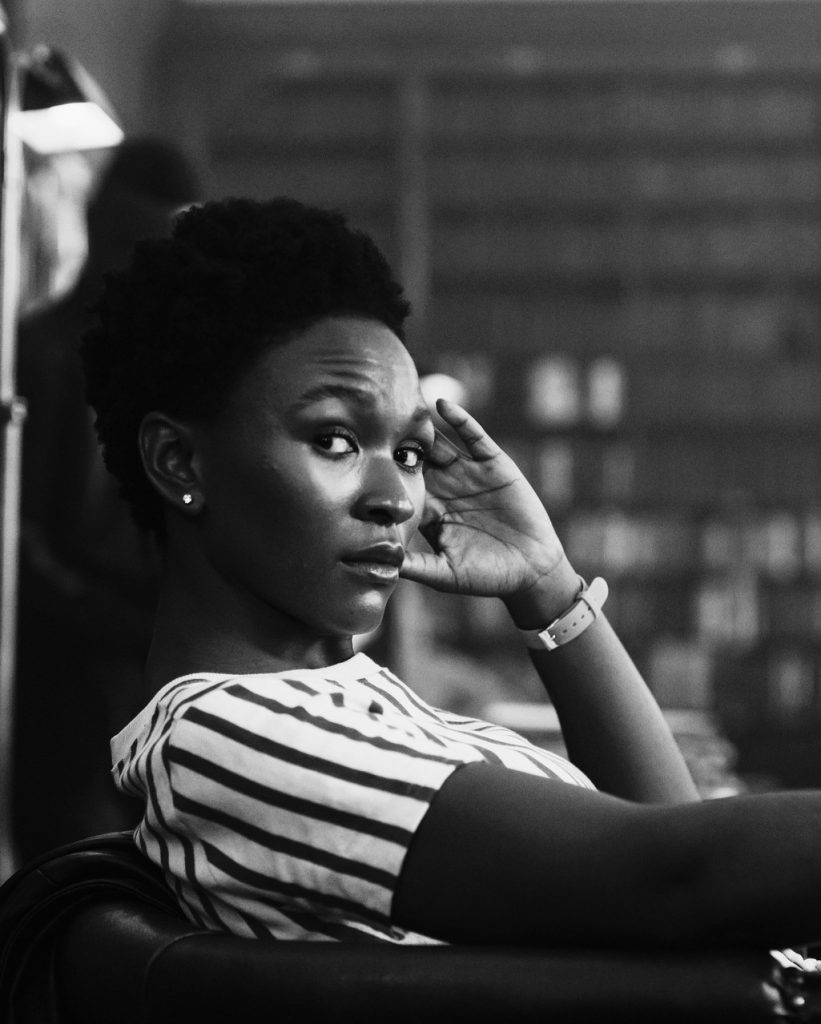
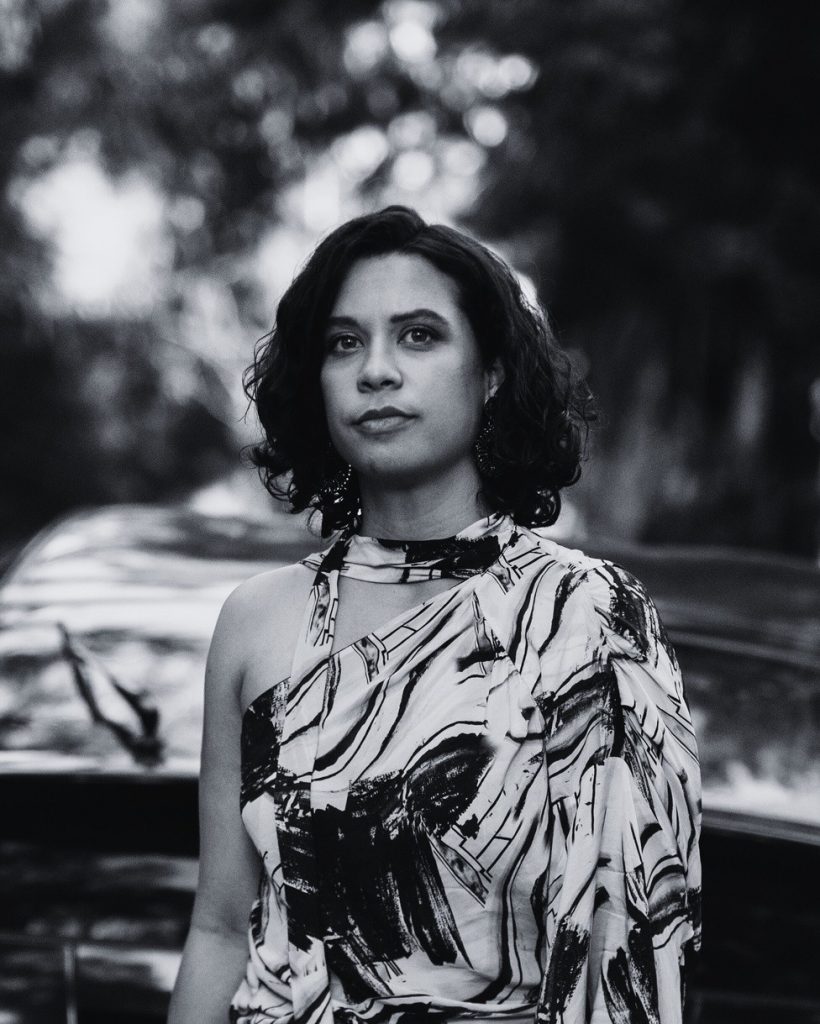
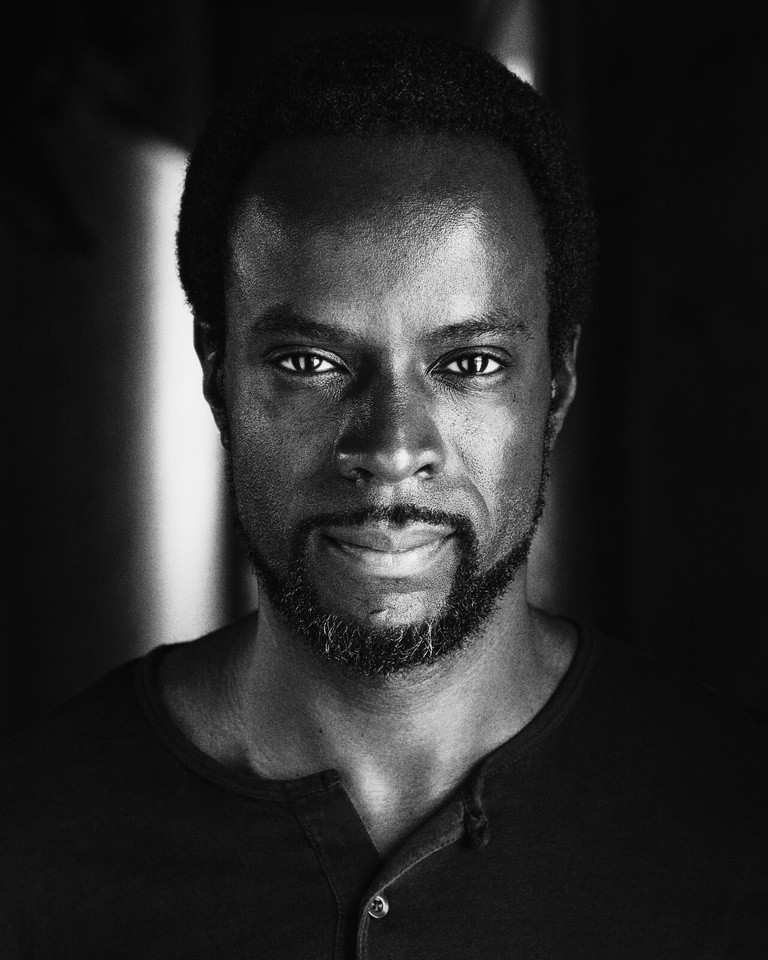
Noxolo Dlamini: What I loved was the fact that I think as a South African woman, we’re very resilient. I believe it comes from how we were before, and it’s really filtered into the women of today. And I think Luyanda is very reflective of that. I think this generation is very outspoken and can be one to find the truth.
It was also almost like a mirroring between Emma and Luyanda. They are so similar in how free they are, how outspoken they are. It’s like these two women telling each other stories. I thought it was really beautiful to have those two women come together in a place where they would never come together, if that makes any sense. It was absolutely stunning that it was also a Black woman telling this white woman’s story. As South Africans that brings us together as well and doesn’t make it seem like your story is yours and my story is mine. But we tell each other stories because our history as South Africans is shared.
Kathleen Stephens: I think that it begins with a woman and Emma Louw as the catalyst and then it ends with a woman which I think is right. And it is not a damsel in distress story. There are awesome individuals going out there and blowing the truth wide open. You’re also getting evil characters played by a woman. So, you’re getting multifaceted faceted people and I think that’s fantastic.
Anthony Oseyemi: I think everybody’s covered it but what for me really stood out was that all things are connected. And the keeper of stories is ultimately the woman in our society. So, the fact that this then played out that way, makes a lot of sense. And also, it gives a different viewpoint in terms of the viewer’s eye, because it’s not some dude jumping from building to building, being chased a la Jack Ryan. This has a much different texture and shows that each ecosystem connects with the other and the story continues.
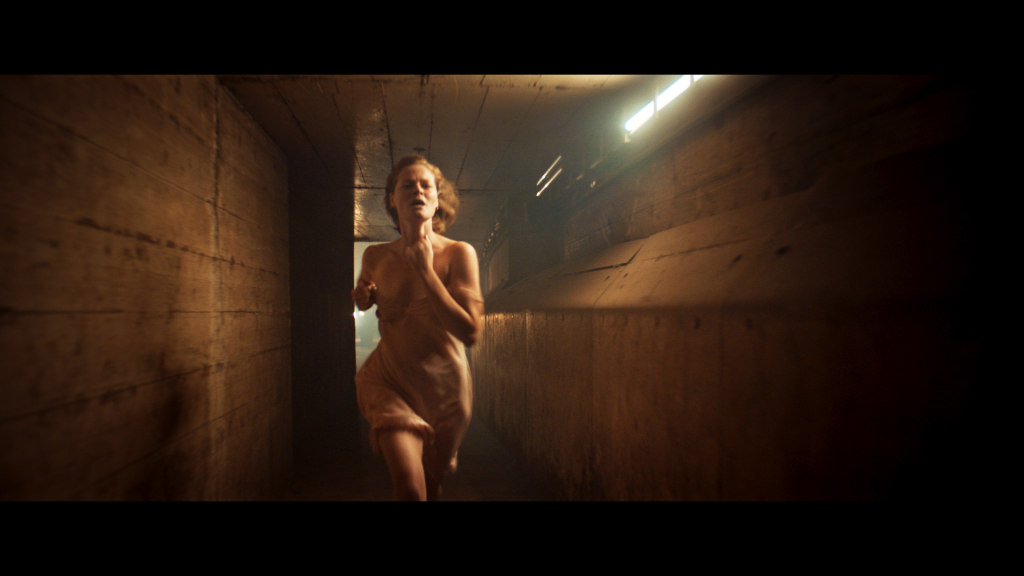
As a cast, you all have impressive credentials having worked on a variety of projects (series, films). What about this project attracted you?
Noxolo Dlamini: It’s the story. It’s definitely the connection to something that is greater than ourselves. I’ve come so much closer to knowing more about my history and knowing about the people in my country that I didn’t know. It was definitely a well written script with an important story to tell. I just knew I wanted to be a part of this.
Kathleen Stephens: It’s an authentic South African story that I don’t think I’ve seen yet. It’s just been such a privilege to work with such an incredible cost and a sensational crew. But I haven’t seen anything like this, and I think people are really going to enjoy it and relate to it. It’s very interesting because there are a lot of characters that historically you can relate to and are possibly in hiding. I know that Ian speaks a lot about whistleblowers who have recently passed away and it’s quite scary to think about that. That there are these people in the world that put their lives on the line to get the truth out there—it’s authentic. It’s real.
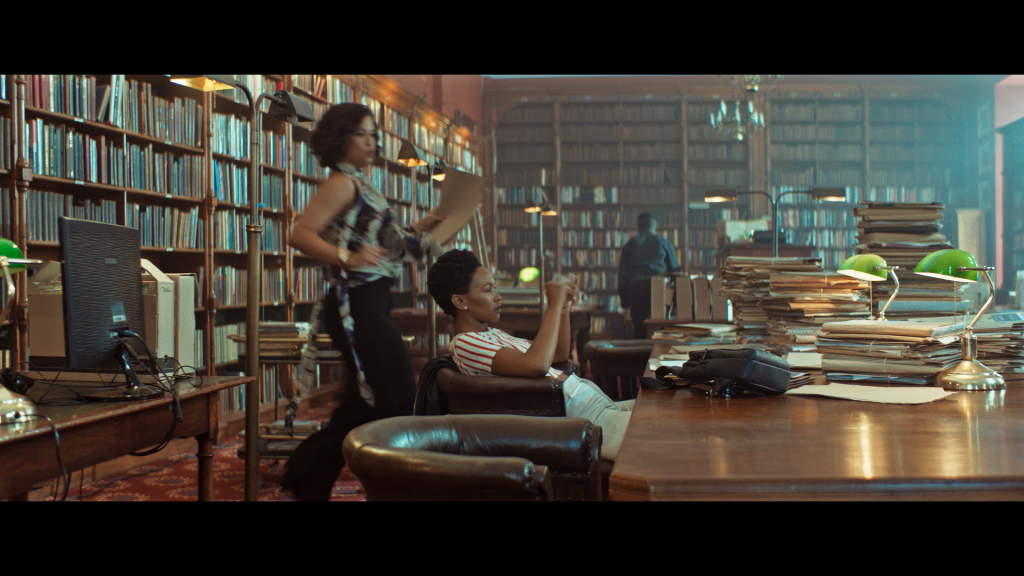
How did you get to know and then prepare to present these characters?
Anthony Oseyemi: A lot of preparation for me was being about being an understated pragmatic. Y character is very aware of the world he operates in and what he does. He has no illusions about it. He’s not pretending he’s a good guy. He’s there to be paid to fill a service. And that service may not be your cup of tea, but he will carry it out. Without hesitation. He’s not going to shout at us. There’s no excitement. He just conveys these are the facts and this is how it goes and what you need to understand. The role was very subtle, but always insidious.
Noxolo Dlamini: The script gives me a start, but I borrow a lot from me, and I am very realistic in my performance. I like to believe my performances, so I really do draw from myself. But also, I had to prepare for it and how journalists work. I obviously had to do my research about what we’re talking about and how it’s affected people in order to portray it in a way that’s believable.
Kathleen Stephens: I definitely agree with the following the script, and you’ve got to break it down.
I think it’s going to sound silly, but for me, one of the more fun ways of preparing was when I got to put on my costumes. Because Astha really got these things that I wouldn’t necessarily as Kathleen wear. Our costume designer would have be put something on and I would feel like Astha. When I put on the costume, I get the sense of who she is. She comes from money, but she is quite a loving character as a loyal best friend. Her love of fashion gives her a certain kind of flavor, which was just a lot of fun.
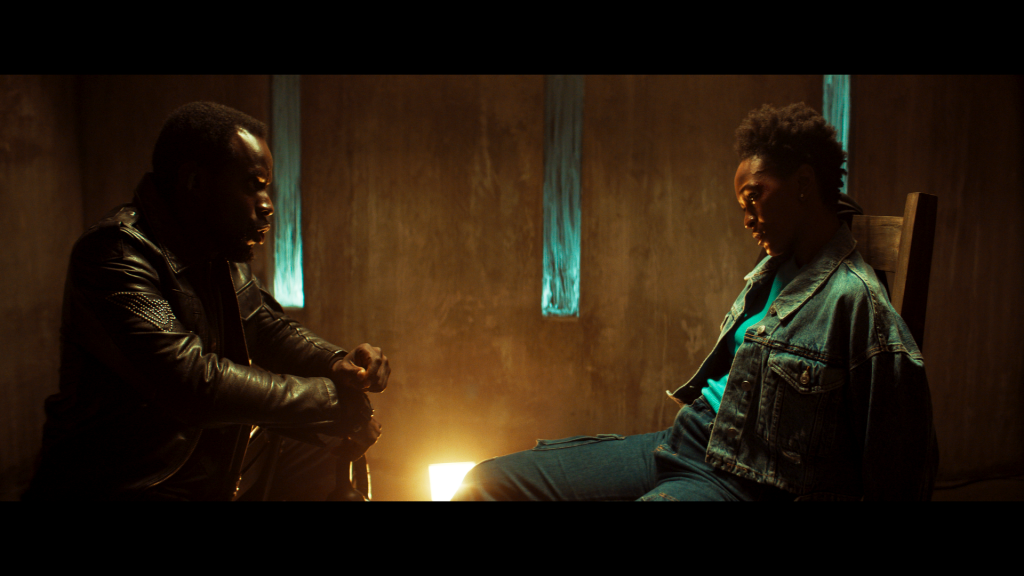
What do you want audiences to take away from their experience viewing the film—both global audiences and South African audiences?
Anthony Oseyemi: Me personally, that anything is possible. This lady in the past whose life is over and then this other lady decades into the future decides “let me unpack this person’s life and see exactly what happened and expose the truths of what she lived.” For me, that shows the audiences that anything is possible. A story ends up being told that might never have been told. I love that.
Classic Couple Academy Recommends
Watch the Death of a Whistleblower trailer.
Death of a Whistleblower TIFF Screening Schedule:
World Premiere
Saturday, September 9 at 2:45pm EST TIFF Bell Lightbox (Cinema 1)
Additional Public Screenings:
Sunday, September 10 at 9:40pm EST ScotiaBank (Cinema 7)
Sunday, September 17 at 10pm EST ScotiaBank (Cinema 10)

